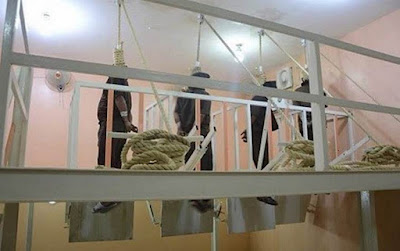LINCOLN — Witnesses to executions in Nebraska should be allowed to view the entire procedure — and not have their view blocked by a curtain — to ensure that nothing goes wrong in the process, a state legislative committee was told Thursday.
State Sen. Patty Pansing Brooks of Lincoln said that lack of transparency was “profound” when the state carried out the execution of double-murderer Carey Dean Moore in August. Because a curtain was pulled for 14 minutes, state-required witnesses were not permitted to see Moore declared dead.
The senator introduced Legislative Bill 238, which would require media and other witnesses to “continually witness” an execution, from when the IV lines are set until the declaration of death. Under the bill, two members of the Legislature would also be added as witnesses.
“This bill is not about whether the death penalty is right or wrong, it’s about whether we have proper government accountability and transparency in carrying out this grave and somber event,” Pansing Brooks told the Judiciary Committee.
Moore’s execution was the first in Nebraska in 21 years, and the first ever by lethal injection. But the state drew some criticism for closing a curtain on witnesses after the last of four lethal-injection drugs was administered. Some claimed that the witnesses had not “witnessed” an execution because Moore was declared dead after the curtain was closed.
State Corrections Director Scott Frakes, in a letter, defended the practice.
Frakes said the curtain was closed because the execution was then “complete.” He said he waited 5 minutes before calling for the coroner and his team to come into the execution chamber and declare Moore officially dead.
“The curtain was closed out of respect for the witnesses — the family and friends of Mr. Moore as well as the witnesses attending the victims,” Frakes wrote. “It also permitted some privacy for Mr. Moore while his body was physically examined.”
But a national expert on the death penalty disagreed, as did the ACLU of Nebraska. They said that executions, as well as the procurement of lethal injection drugs, should not be done in secret.
Robert Dunham, the executive director of the Washington, D.C.-based Death Penalty Information Center, said the insertion of the IV port to administer the drugs should also be done in the sight of witnesses, to ensure that an inmate is not experiencing undue pain and suffering. Finding a proper vein, he said, has been a problem in more than one execution.
“We’re a government of the people and we have a right to know what government is doing and a right to actually see what they’re doing,” he said in an interview before the hearing. “The problem in Nebraska is that there was too much we didn’t know about the execution to say if it was problematic or not.”
In Moore’s execution, witnesses reported that he coughed, his chest heaved and his face turned red and then purple. The curtains were closed only a minute after he opened his eyes with a vacant gaze.
Dunham, whose office does not advocate for or against capital punishment, said witness verification is vital at a time when states have been blocked from obtaining drugs from pharmaceutical companies and have turned, out of public view, to sometimes questionable sources.
Nebraska has been among those states.
In 2010, federal authorities destroyed a batch of lethal injection drugs delivered by a broker from India after determining that the Nebraska Department of Corrections lacked the proper importer’s license. A second shipment expired amid claims by the drug’s Swiss manufacturer that the broker obtained the drug under false pretenses.
In 2015, the state paid $54,000 to the same broker, Chris Harris, but never received any drugs. In that case, the FDA blocked the importation because one of the drugs was no longer manufactured or approved for general use in the U.S.
Nebraska officials declined to reveal the source of the four drugs used in the Moore execution. Dunham said that raises all kinds of questions about whether the manufacturer was credible and whether the drugs were pure. To be fully transparent, he said, states should not only reveal their source, but when and how much of each drug is administered.
Source: norfolkdailynews.com, World-Herald News Service, March 8, 2019
⚑ | Report an error, an omission, a typo; suggest a story or a new angle to an existing story; submit a piece, a comment; recommend a resource; contact the webmaster, contact us:
deathpenaltynews@gmail.com.
Opposed to Capital Punishment? Help us keep this blog up and running! DONATE!
"One is absolutely sickened, not by the crimes that the wicked have committed,
but by the punishments that the good have inflicted." -- Oscar Wilde




.jpg)







